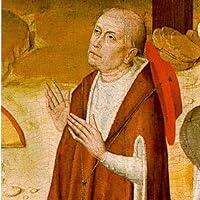
Nicholas of Cusa
Sull'autore
Nicholas of Cusa was a German philosopher, theologian, and cardinal of the Catholic Church during the 15th century. He is best known for his works on metaphysics, natural philosophy, and mathematics, where he sought to reconcile faith and reason. Cusa's ideas were foundational in the development of Renaissance thought, emphasizing the importance of individual experience and the limitations of human understanding. His most notable contribution is the concept of 'learned ignorance,' which posits that human beings can never fully comprehend the divine, leading to a humble approach to knowledge and belief.
Throughout his life, Nicholas was engaged in various ecclesiastical and diplomatic roles, which allowed him to influence both religious and secular thought. His writings addressed the nature of God, the universe, and humanity's place within it, advocating for a more personal and experiential form of spirituality. His works inspired later thinkers and movements, contributing significantly to the evolution of Western philosophy and theology. Nicholas of Cusa remains a pivotal figure in the history of ideas, bridging medieval scholasticism and the emerging modern worldview.